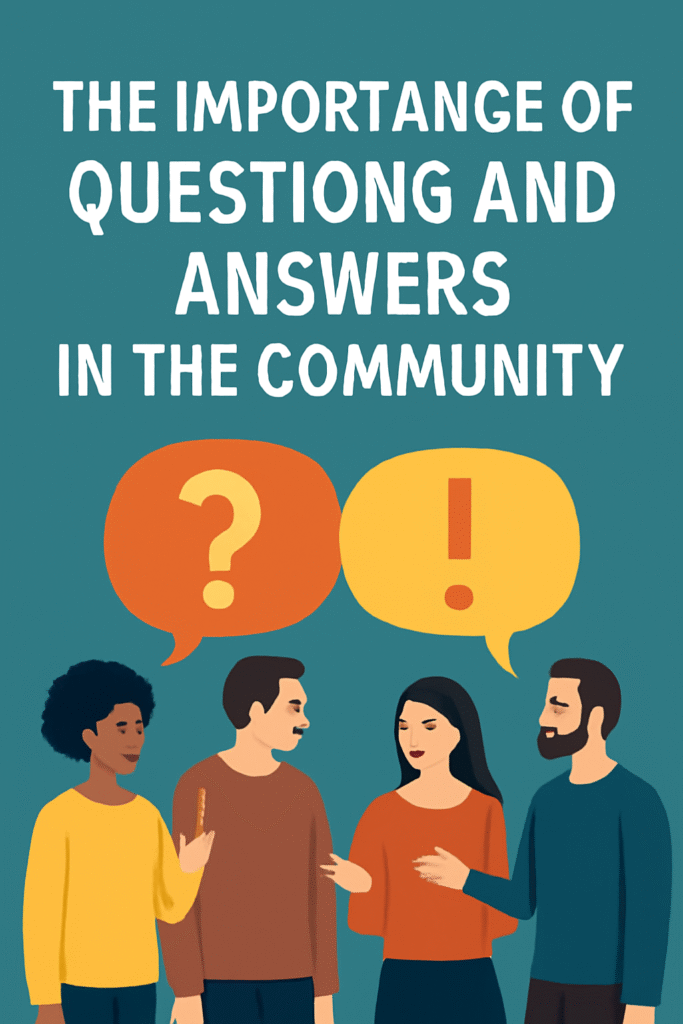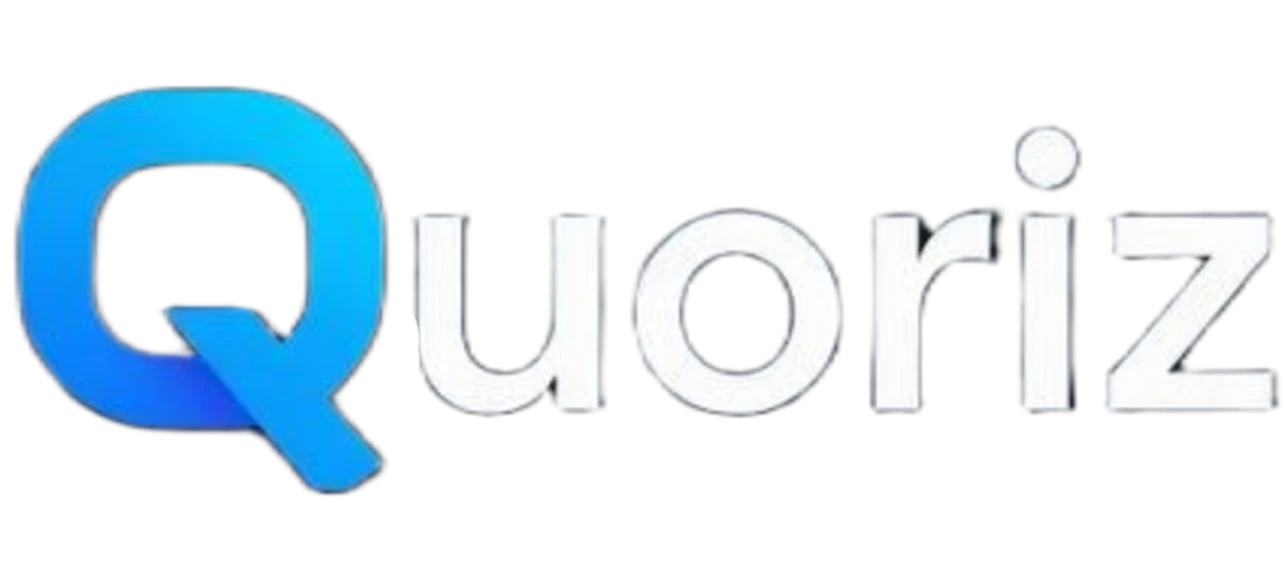
The Importance Of Questions And Answers In The Community
In every aspect of human interaction, questions and answers form the backbone of communication. They serve as the bridge that connects people, ideas, and solutions. In communities—whether local or online—questions and answers not only spark conversation but also foster learning, growth, and problem-solving. From helping individuals find information to enabling larger-scale societal change, the exchange of questions and answers plays an indispensable role in shaping our communities.
This article explores “The Importance of Questions and Answers,” shedding light on how they impact communities, why they are essential, and how they promote collaboration, engagement, and development. Whether it’s a neighborhood group or an online forum, the simple act of asking and answering questions can result in significant transformations, both for individuals and the wider community.

The Importance of Questions and Answers in Fostering
At their core, questions and answers are tools for effective communication. When someone poses a question, it triggers a conversation that can lead to the sharing of knowledge, advice, experiences, and insights. These exchanges are vital for fostering understanding between individuals with different backgrounds, expertise, and perspectives.
In a community setting, questions and answers enable members to voice concerns, seek solutions, and clarify doubts. A question may arise out of curiosity, confusion, or necessity, and the answer, in turn, provides clarity, direction, or a possible resolution. Whether these exchanges occur face-to-face or through digital platforms, the result is the same: the community grows stronger through mutual understanding.

What Is The Importance of Questions and Answers?
For example, in an online discussion forum, a person might ask. “What are the best methods for dealing with stress?”. In response, various community members might share their coping strategies, recommending techniques like meditation, exercise, or seeking professional help. The variety of answers enriches the conversation, allowing participants to consider different approaches and find what works best for them.
Knowledge Sharing and Collective Intelligence
One of the most important aspects of questions and answers in a community is their role in knowledge sharing. Every individual possesses a unique set of experiences, skills, and expertise. By asking questions and providing answers, people contribute their knowledge to the collective intelligence of the community. This accumulation of shared knowledge can solve problems, advance understanding, and even inspire innovation.
In traditional communities, knowledge might have been passed down through oral storytelling or word of mouth. Today, however, the digital age has transformed how knowledge is shared. Platforms like Quora, Stack Exchange, Reddit, and specialized online forums provide spaces where people can ask questions on any topic. From technical inquiries to personal advice, and receive answers from knowledgeable individuals worldwide.
Through this exchange, communities build a shared knowledge base that can be referred to at any time. For example, a person researching a health issue might find answers to similar questions asked by others. Providing insights into potential causes, treatments, or preventative measures. This collective intelligence allows communities to make more informed decisions and grow intellectually.

Building Trust and Strengthening Relationships
When individuals in a community engage in asking and answering questions, trust is built. By responding to questions, individuals not only share their knowledge. But also demonstrate their willingness to help and contribute to the wellbeing of others. This builds rapport, fostering a sense of camaraderie and mutual respect.
In a local community, trust is often a critical factor in the success of collective initiatives. Whether it is organizing a community cleanup, supporting local businesses, or advocating for change, trust between community members ensures cooperation and alignment of goals. When people know they can ask a question and receive thoughtful and reliable answers, it encourages ongoing engagement and collaboration.
Moreover, when people contribute their answers to questions, they gain a sense of satisfaction in knowing that their input has made a difference. The more questions answered, the more relationships strengthen. As individuals develop a deeper connection with others who share their values, concerns, and interests.
Problem Solving and Decision-Making
Questions and answers are often at the heart of problem-solving. Communities face a wide range of challenges—social, environmental, economic. And cultural—and it is through the exchange of questions and answers that solutions are found. Asking the right questions is a critical first step in identifying problems, while providing accurate and thoughtful answers helps to resolve them.
Consider a community struggling with a local environmental issue, such as pollution or waste management. By asking questions like, “What can we do to reduce pollution in our area?” or “What sustainable practices can our community adopt?” members can brainstorm ideas and identify potential solutions. Through open dialogue, the community may decide on actionable steps, such as organizing recycling programs, reducing single-use plastics. Or encouraging public transportation. The answers provided by individuals with expertise in environmental science or urban planning can guide the community toward making informed decisions that benefit everyone.
This process of collective problem-solving extends to online communities as well. For instance, in a tech community, a person may ask, “How can I fix this bug in my code?”. The answers provided by experienced developers can guide the individual toward a solution, saving time and resources. Through this interaction, the community as a whole grows in its ability to overcome challenges and find practical solutions.

Empowerment Through Education: “Questions and Answers”
Questions and answers are a powerful tool for empowering individuals through education. In a community where knowledge is freely shared, members are encouraged to ask questions without fear of judgment, enabling them to learn and grow. Education, in this sense, is not limited to formal institutions but extends to informal learning environments. Where individuals can seek answers to questions that are important to their personal or professional lives.
For instance, a person considering a career change might ask, “What skills do I need to transition into a new field?”. Responses from others who have undergone similar transitions can provide valuable insights, helping the individual understand what steps to take. In this way, individuals are empowered to take control of their own learning and development.
Online platforms that facilitate questions and answers—such as educational forums or self-help communities. Have become particularly instrumental in empowering people worldwide. With the help of these platforms, individuals from all walks of life can access expert advice and gain knowledge on topics that might not have been readily available in their local communities.
Encouraging Diversity of Thought
One of the most powerful aspects of questions and answers is their ability to bring together diverse perspectives. In any community, there is a wide range of experiences, opinions, and ideas. When questions are posed, answers come from individuals with different backgrounds, cultures, and worldviews, enriching the conversation and expanding the collective knowledge base.
By asking questions and encouraging answers from all members, a community fosters an environment of inclusivity, where diversity of thought is celebrated. This diversity leads to more creative solutions, innovative ideas, and better decision-making. Whether it is addressing social issues, business challenges, or personal development. By having access to a variety of perspectives ensures that the solutions proposed are well-rounded and effective.
In an online context, global communities benefit from the diversity of answers provided by people from different countries, cultures, and industries. This exchange of ideas helps to break down barriers and promote a more interconnected world.
Improving Community Engagement
Asking questions and providing answers is one of the most effective ways to encourage community engagement. When people are encouraged to ask questions, it sparks conversations, debates, and discussions. These interactions lead to a deeper level of engagement, as people are more likely to stay involved in a community where their voices are heard and their questions are valued.
Community engagement can take many forms, from attending local meetings to participating in online discussions. The more people interact with one another through questions and answers, the more invested they become in the success and wellbeing of the community. This engagement often results in stronger connections and a deeper sense of belonging.
Additionally, when communities prioritize open communication through questions and answers, they become more resilient. In times of crisis or uncertainty, people are more likely to come together and support one another if there is a culture of sharing information and helping others through questions and answers.
Conclusion of The Importance of Questions and Answers
The importance of questions and answers in the community cannot be overstated. They are essential for fostering communication, sharing knowledge, solving problems, building trust, and empowering individuals. In a world that is constantly changing, the ability to ask questions and receive thoughtful answers is a powerful tool for progress and growth.
From local neighborhoods to online forums. The exchange of questions and answers plays a vital role in strengthening communities, encouraging collaboration, and enabling people to learn from one another. As we continue to navigate the complexities of modern life, the act of asking and answering questions will remain a cornerstone of human interaction. Guiding us toward better solutions, deeper understanding, and stronger connections.

Comment ( 1 )
Questions and answers form the backbone of any thriving community. Skilled questions provoke clarity, spark curiosity, and surface hidden challenges. Thoughtful replies—grounded in direct experience, diverse viewpoints, or strong reasoning—transform uncertainty into insight and accelerate collective progress.
Without inquiry, knowledge stagnates. Communities evolve when members feel empowered to ask and share. When answers are respectful, well-researched, and precise, they build trust, set norms, and foster learning. Equally important is diversity of voices: differing backgrounds and styles enrich the dialogue, exposing blind spots and elevating solutions.
In practice:
Encourage well‑framed questions: Specific, goal‑oriented queries invite actionable responses.
Reward thoughtful answers: Highlight accuracy, context, and sources to raise standards.
Promote follow‑up: Ongoing engagement—clarifications, examples, counter‑ideas—leads to deeper understanding.